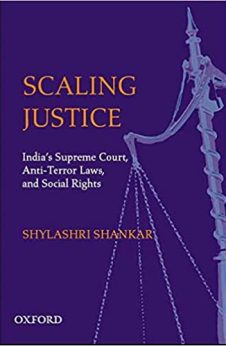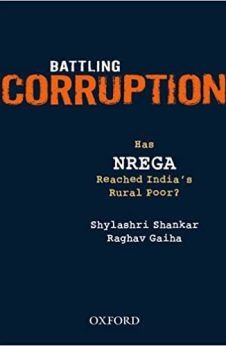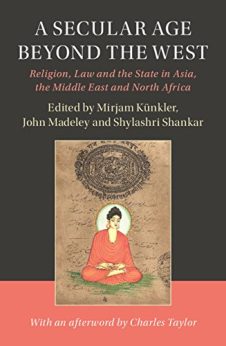
Turmeric Nation
A Passage Through India’s Tastes
Winner of AUTHER award for best nonfiction 2021
Our food habits come from a particular context – a culture, religion, geography, our travels and what we are exposed to at different stages of our lives and in different seasons. Our food choices inform our identity, and our identity, in turn, informs our food choices. The essays explore questions on how and why what we eat or don’t eat influences and shapes who we are.

Turmeric Nation
A Passage Through India’s Tastes
Winner of AUTHER award for best nonfiction 2021
Our food habits come from a particular context – a culture, religion, geography, our travels and what we are exposed to at different stages of our lives and in different seasons. Our food choices inform our identity, and our identity, in turn, informs our food choices. The essays explore questions on how and why what we eat or don’t eat influences and shapes who we are.

Turmeric Nation
A Passage Through India’s Tastes
Winner of AUTHER award for best nonfiction 2021
Our food habits come from a particular context – a culture, religion, geography, our travels and what we are exposed to at different stages of our lives and in different seasons. Our food choices inform our identity, and our identity, in turn, informs our food choices. The essays explore questions on how and why what we eat or don’t eat influences and shapes who we are.

Scaling Justice
India's Supreme Court, Social Rights and Civil Liberties
What determines the choices higher court judges make on anti-terror laws and the rights to health and education? The book argues that judges are embedded negotiators. While deciding a case, a judge negotiates with four elements: the framework of laws, institutional norms and memories, political influences and public concerns.

Scaling Justice
India's Supreme Court, Social Rights and Civil Liberties
What determines the choices higher court judges make on anti-terror laws and the rights to health and education? The book argues that judges are embedded negotiators. While deciding a case, a judge negotiates with four elements: the framework of laws, institutional norms and memories, political influences and public concerns.

Scaling Justice
India's Supreme Court, Social Rights and Civil Liberties
What determines the choices higher court judges make on anti-terror laws and the rights to health and education? The book argues that judges are embedded negotiators. While deciding a case, a judge negotiates with four elements: the framework of laws, institutional norms and memories, political influences and public concerns.

Battling Corruption
Has NREGA Reached India's Rural Poor?
The book examines the effectiveness of formal and informal mechanisms – political decentralization, community social audits, access to information, membership in networks, political competition – that have enabled a national workfare scheme to reach its intended beneficiaries.

Battling Corruption
Has NREGA Reached India's Rural Poor?
The book examines the effectiveness of formal and informal mechanisms – political decentralization, community social audits, access to information, membership in networks, political competition – that have enabled a national workfare scheme to reach its intended beneficiaries.

Battling Corruption
Has NREGA Reached India's Rural Poor?
The book examines the effectiveness of formal and informal mechanisms – political decentralization, community social audits, access to information, membership in networks, political competition – that have enabled a national workfare scheme to reach its intended beneficiaries.

A Secular Age beyond the West
Religion, Law and the State in Asia, the Middle East and North Africa
This book traces religion and secularity in eleven countries not shaped by Western Christianity (Japan, China, Indonesia, India, Pakistan, Iran, Russia, Turkey, Israel, Egypt, and Morocco), and how they parallel or diverge from Charles Taylor’s grand narrative of the North Atlantic world, A Secular Age (2007).

A Secular Age beyond the West
Religion, Law and the State in Asia, the Middle East and North Africa
This book traces religion and secularity in eleven countries not shaped by Western Christianity (Japan, China, Indonesia, India, Pakistan, Iran, Russia, Turkey, Israel, Egypt, and Morocco), and how they parallel or diverge from Charles Taylor’s grand narrative of the North Atlantic world, A Secular Age (2007).

A Secular Age beyond the West
Religion, Law and the State in Asia, the Middle East and North Africa
This book traces religion and secularity in eleven countries not shaped by Western Christianity (Japan, China, Indonesia, India, Pakistan, Iran, Russia, Turkey, Israel, Egypt, and Morocco), and how they parallel or diverge from Charles Taylor’s grand narrative of the North Atlantic world, A Secular Age (2007).